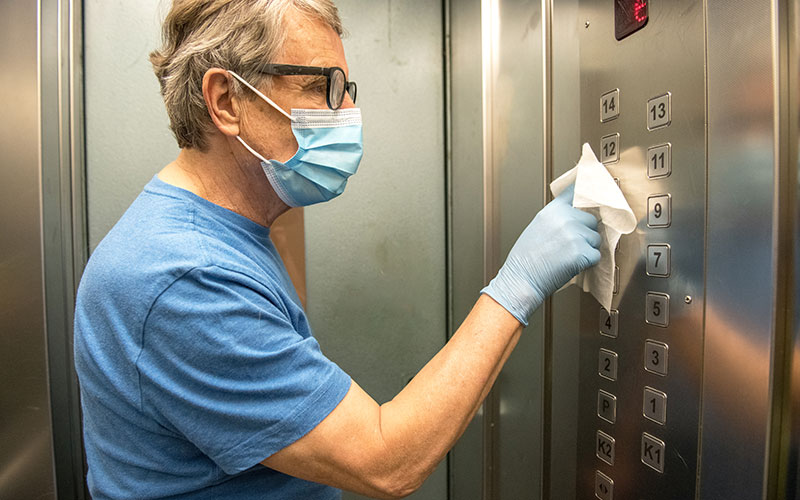Predictions for what the socially distanced workplace will look like

Lift capacity may be limited to one person, all office food may have to be pre-packaged and automatic activation could replace touching.
These are some of the predictions from recruitment and HR guru Dr John Sullivan (Dr John), in his latest whitepaper, ‘The upcoming social distanced workplace will shock you’.
The US-based expert’s view of the near future echoes some of the potential UK government guidelines published over the weekend for allowing businesses to reopen in the wake of the Covid-19 lockdown. It also warns that financing such measures may prove difficult for organisations already pummelled by blows to the global business world.
Draft government plans to ease the lockdown restrictions include staggering work shifts, maximising home working, physical screens, and changing workspace layouts and seating plans to promote social distancing.
In his whitepaper published last week, US-based Dr John warns: “The required social space on the business side of many companies will mean that in many cases, fewer customers can be served. In other organisations, the general global business downturn will also mean radically reduced revenues.
“Taken together,” he says, “this means that most organisational budgets will be severely reduced.” At the same time, finding resources to fund the Covid-19 related changes “a stressful challenge”, he says.
Among the physical workplace changes Dr John envisions are:
- Social spacing will severely limit the capacity of break rooms, eating areas and meeting rooms, along with forcing a reduction in lift capacity. Usage may have to be scheduled in advance.
- Continuous sanitation will be essential. Every area where congregation occurs will be sanitised twice a day and deeply cleaned once at the end of every day. Hand sanitisers will be placed at every major doorway, Surplus toilet paper will be locked up.
- All office food will be pre-packaged with open containers of food not allowed for parties.
- Automatic activation will replace touching. To reduce the spread of the virus, handles for doors and buttons for lifts, vending machines and other equipment will shift to voice or heat sensor activation. Other frequently touched surfaces will be cleaned by the user before and after each use.
Finally, to avoid future disruptions, Dr John says, “workforce planning will have to be reinvigorated so that the organisation is prepared for the many upcoming changes in talent supply and demand. Because there will likely be hiring and development budget freeze, there will be a dramatic rise in the importance of proactively guided internal movement so that the remaining employees can be quickly redeployed and placed in the right jobs when corporate needs rapidly shift”.
• Let us know what you think by emailing us at [email protected] or tweet us to tell us your thoughts or share this story with a friend.




